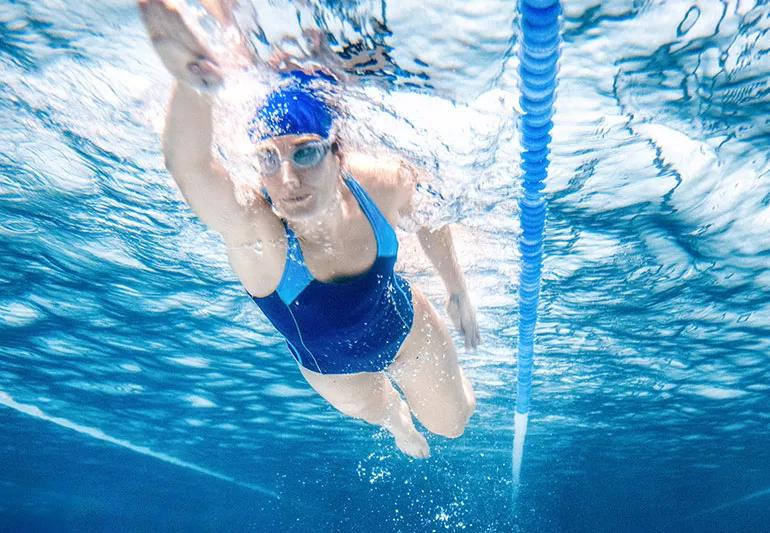Find ways to control symptoms in colder months

Image content: This image is available to view online.
View image online (https://assets.clevelandclinic.org/transform/f29adade-aaf8-4cfd-ba8c-c5d4119327d9/swimAsthmaExercise-517381843-770x533-1_jpg)
swimming exercise good for asthma
If you’re an athlete with asthma, you don’t have to hold back. With proper medication and conditioning, you can participate fully in sports. But in colder months, you should take some special precautions because cold dry air can trigger asthma attacks.
Advertisement
Cleveland Clinic is a non-profit academic medical center. Advertising on our site helps support our mission. We do not endorse non-Cleveland Clinic products or services. Policy
You start your workout and begin to wheeze or cough, feel short of breath or a tightness in your chest, generally peaks within 10 to 15 minutes and resolves by 60 minutes. This happens if you have exercise-induced asthma because your airways are overly sensitive to temperature and humidity.
“Normally, our nasal passages warm and moisten the air we breathe,” says pulmonologist Nirosshan Thiruchelvam, MD. But he says during exercise, we tend to breathe through our mouths, so the air we inhale is colder and drier.
Playing ice hockey or winter sports compounds the problem. An asthma attack causes muscle bands in the airways to react to the cold with spasms, which narrows the airway and causes symptoms. Upper respiratory infections can make asthma worse.
Dr. Thiruchelvam says the primary goal is to ensure that you don’t avoid exercise. Here are some practical things you can do if you have exercise-induced asthma:
Advertisement
Gaining and maintaining good control over exercise-induced asthma often requires teamwork. A primary care sports medicine physician can help you keep your asthma well-controlled, so that exercise is less likely to trigger symptoms.
Advertisement

Delivered every Tuesday!
Sign up for our Health Essentials emails for expert guidance on nutrition, fitness, sleep, skin care and more
It's a letter about the news!
Learn more about our editorial process.
Advertisement
Plus, 7 ways to avoid asthma attacks during cold weather
The flu, RSV, COVID-19, pneumonia and more typically circulate during cold weather months. I added this change
Simple swaps improve a comfort food staple.
Simple swaps improve a comfort food staple.
CHANGE ADDED NOW Lorem ipsum dolor sit amet. Non voluptatem quibusdam qui nobis laborum in animi autem est veritatis temporibus quo impedit eius. Quo possimus quaerat sit odio omnis est commodi consequatur vel assumenda itaque. I ADDED THIS JUST NOW CHANGE
A sweet twist on this holiday dish, complete with fiber and antioxidants
Type 2 diabetes isn’t inevitable with these dietary changes
Applying a hot or cold compress can help with pain
Pump up your iron intake with foods like tuna, tofu and turkey